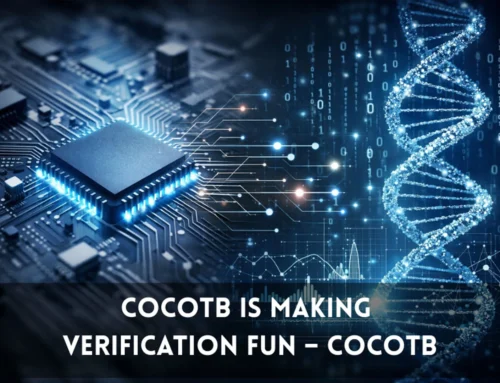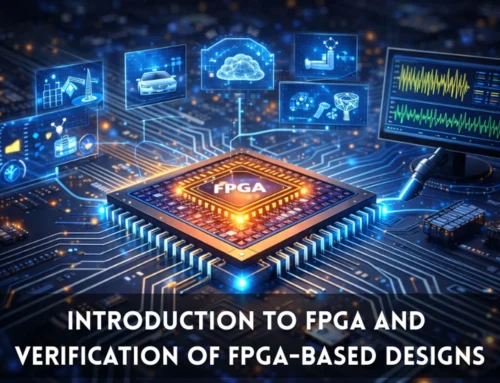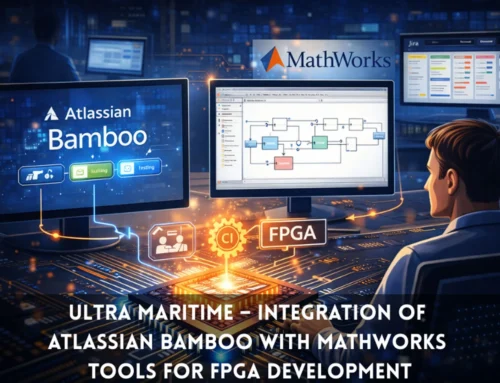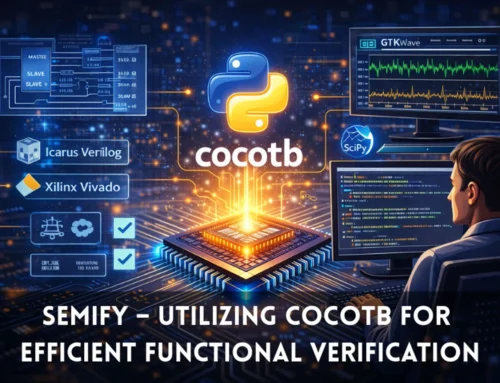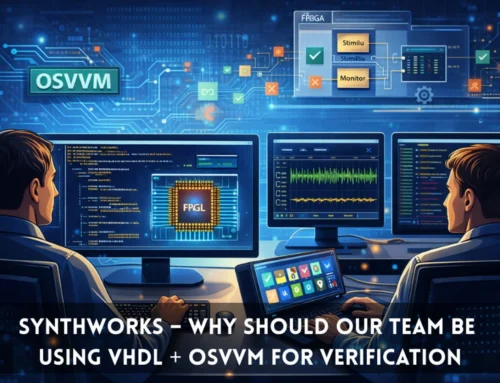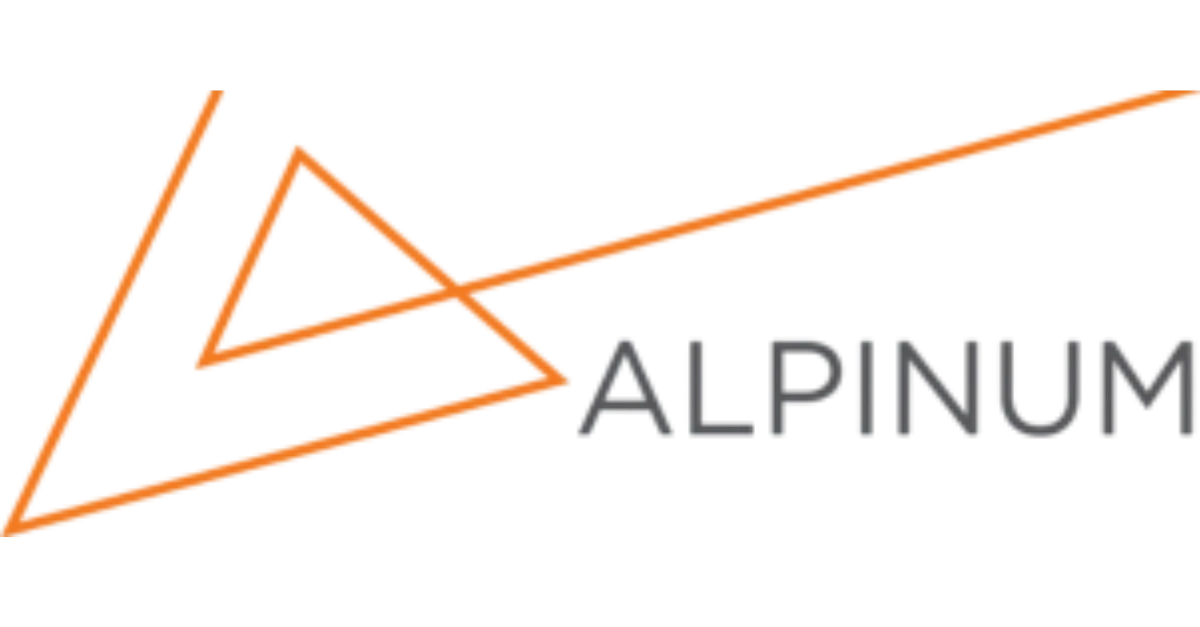Unlocking Efficiency with UVVM in FPGA Verification
Espen Tallaksen, (2024) states that the Universal VHDL Verification Methodology (UVVM) has emerged as a groundbreaking solution for FPGA verification, transforming how designers approach testing and validation. UVVM offers a structured and open-source framework, making it an essential tool for modern verification workflows. With its comprehensive architecture, UVVM simplifies testbench creation, accelerates verification processes, and ensures superior design quality. Endorsed by industry leaders like Doulos, it provides unmatched efficiency, saving hundreds to thousands of hours on medium-complexity projects while improving metrics like Time to Market (TTM), Mean Time Between Failures (MTBF), and Life Cycle Cost (LCC).
EmLogic: A Partner in FPGA Excellence
Since its inception in 2021, EmLogic has established itself as a premier independent design center for embedded systems and FPGA in Norway, as noted by Espen Tallaksen, (2024). With a team of 44 experts in software, hardware, FPGA, and DSP, EmLogic specializes in VHDL verification and methodology. Their expertise extends beyond tools, offering in-depth courses such as “Advanced VHDL Verification – Made Simple” and “Accelerating FPGA and Digital ASIC Design.” As a preferred partner for European Space Agency (ESA) projects, EmLogic leverages Norway’s unique low geo return, opening new opportunities for innovation and collaboration.
Free Resources for Enhanced Learning
UVVM and EmLogic are committed to empowering the FPGA community through free and accessible resources, as emphasized by Espen Tallaksen, (2024). These include webinars hosted by renowned companies like Siemens and Aldec and a vast repository of testbench examples and interface models available on GitHub. Additionally, UVVM offers comprehensive Bus Functional Models (BFMs) and Verification Component Configurations (VVCs) for standard interfaces such as AXI4, SPI, I2C, and UART. These resources enable designers to adopt best practices, ensuring high-quality verification without financial constraints.
Why UVVM is the Go-To Choice for Verification
What sets UVVM apart is its simplicity, readability, and adaptability, making it the fastest-growing FPGA verification methodology in Europe, as highlighted by Espen Tallaksen, (2024). Its structured approach ensures processes are easy to understand, debug, and maintain while promoting project reusability. Designers benefit from enhanced efficiency and quality, with UVVM bridging theoretical methodologies and practical applications. UVVM has become a critical enabler for efficient, scalable, and reliable FPGA designs by addressing every aspect of verification.
Take the Next Step in Your FPGA Journey
Embrace the power of UVVM and the expertise of EmLogic to transform your FPGA verification workflows, according to Espen Tallaksen, (2024). These tools and methodologies, from free resources to specialized courses, are designed to streamline processes and elevate design quality. Don’t miss upcoming events like “Advanced VHDL Verification – Made Simple” (Nov 25–29, 2024) and “Accelerating FPGA and Digital ASIC Design” (Nov 4–7, 2024), both accessible online. Visit uvvm.github.io for comprehensive documentation and emlogic.no/courses/ to register for courses. Join the growing community of engineers achieving excellence in FPGA design and verification with UVVM and EmLogic.
Note: For those interested in the latest advancements in verification technologies, the FPGA Verification Event 2025 (Verification Futures UK) offers an excellent opportunity to gain insights into cutting-edge verification practices.
References
Espen Tallaksen, (2024). EMLogic – Modern VHDL testbenches. (2024, September). An AXI-STREAM EXAMPLE, FIRST dead simple, – THEN advanced, https://alpinumconsulting.com/fpga-front-runner-sep24/.

Written by : Mike Bartley
Mike started in software testing in 1988 after completing a PhD in Math, moving to semiconductor Design Verification (DV) in 1994, verifying designs (on Silicon and FPGA) going into commercial and safety-related sectors such as mobile phones, automotive, comms, cloud/data servers, and Artificial Intelligence. Mike built and managed state-of-the-art DV teams inside several companies, specialising in CPU verification.
Mike founded and grew a DV services company to 450+ engineers globally, successfully delivering services and solutions to over 50+ clients.
Mike started Alpinum in April 2025 to deliver a range of start-of-the art industry solutions:
Alpinum AI provides tools and automations using Artificial Intelligence to help companies reduce development costs (by up to 90%!) Alpinum Services provides RTL to GDS VLSI services from nearshore and offshore centres in Vietnam, India, Egypt, Eastern Europe, Mexico and Costa Rica. Alpinum Consulting also provides strategic board level consultancy services, helping companies to grow. Alpinum training department provides self-paced, fully online training in System Verilog, UVM Introduction and Advanced, Formal Verification, DV methodologies for SV, UVM, VHDL and OSVVM and CPU/RISC-V. Alpinum Events organises a number of free-to-attend industry events
You can contact Mike (mike@alpinumconsulting.com or +44 7796 307958) or book a meeting with Mike using Calendly (https://calendly.com/mike-alpinumconsulting).
Stay Informed and Stay Ahead
Latest Articles, Guides and News
Explore related insights from Alpinum that dive deeper into design verification challenges, practical solutions, and expert perspectives from across the global engineering landscape.


